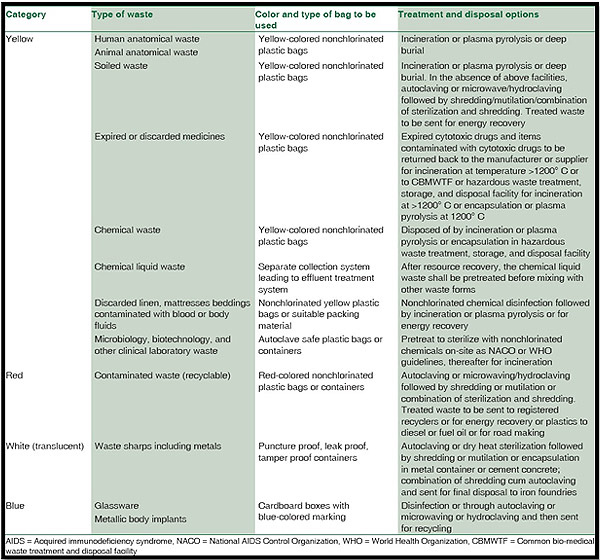Getting The Reclaim Waste To Work
Table of ContentsThe 10-Minute Rule for Reclaim WasteThe Ultimate Guide To Reclaim WasteWhat Does Reclaim Waste Mean?9 Simple Techniques For Reclaim WasteThe Greatest Guide To Reclaim Waste
Domestic sewage waste refers to the waste and products from a household septic storage tank. The correct administration and disposal of residential sewage waste need liquid waste to be moved to a sewage treatment plant where the correct methods and devices are used to purify and dispose of waste.
Industrial waste often includes possible threats, such as flammable products or a combination of liquid and solid waste items, and calls for an advanced and detailed disposal process. The disposal of industrial waste typically includes the filtering of waste prior to transportation to make certain risk-free and appropriate disposal. Industrial waste is produced from by-products and runoff of industrial processes and manufacturing.
This sort of waste can not make use of the very same sewage management transportation or processes as septic or industrial fluids. The commercial waste management process needs the assessment and screening of fluid waste prior to it undertakes the disposal procedure (liquid waste removal melbourne). Overflow waste is the liquid waste that comes from overflow and excess stormwater in highly inhabited areas or cities
Overflow waste can trigger contamination and flooding otherwise taken care of correctly. Discover a lot more concerning sewage system cleansing and waste management. Making sure correct waste monitoring can prevent calamities and reduce environmental damage. Both people in residential settings and specialists in industrial or production sectors can take advantage of recognizing the procedures and guidelines of liquid waste management.
6 Easy Facts About Reclaim Waste Shown
Get in touch with PROS Providers today to learn more about our waste management and disposal solutions and the proper methods to take care of the fluid waste you produce.
(https://forums.hostsearch.com/member.php?271151-reclaimwaste1)Do you understand what occurs to your water when you end, purge the bathroom or drain the cleaning device? No? Well, it deserves understanding. This so-called 'wastewater' is not just a crucial resource yet, after treatment, will certainly be released to our land, rivers or the ocean. Made use of water from toilets, showers, bathrooms, kitchen area sinks, washings and industrial procedures is referred to as wastewater.

water used to cool down machinery or tidy plant and equipment). Stormwater, a kind of wastewater, is drainage that moves from agricultural and city locations such as roofing systems, parks, yards, roads, courses and rain gutters into stormwater drains, after rainfall. Stormwater streams untreated straight to neighborhood creeks or rivers, ultimately getting to the ocean.
Reclaim Waste - The Facts
In Queensland, many wastewater is dealt with at sewage treatment plants. Wastewater is carried from domestic or commercial websites with a system of sewage systems and pump terminals, recognized as sewerage reticulation, to a sewer treatment plant.
The Department of Natural Resources encourages local federal governments regarding managing, operating and maintaining sewage systems and therapy plants. In unsewered locations, city governments might need homeowners to install specific or family sewer treatment systems to deal with domestic wastewater from commodes, kitchen areas, bathrooms and laundries. The Department of Natural Resources authorizes the use of household systems when they are proven to be effective.
A lot of stormwater obtains no treatment. In some brand-new subdivisions, treatment of some stormwater to remove litter, sand and crushed rock has actually started making use of gross pollutant catches. Wastewater treatment occurs in 4 stages: Eliminates strong issue. Bigger solids, such as plastics and various other objects wrongly released to drains, are eliminated when wastewater is passed via displays.
Wastewater then flows right into big storage tanks where solids resolve and are eliminated as sludge. Oil and residue are skimmed from the surface. Makes use of little living organisms referred to as micro-organisms to break down and remove continuing to be dissolved wastes and great fragments. Micro-organisms and wastes are integrated in the sludge. Removes nitrogen and phosphorus nutrients that could trigger algal blooms in our rivers and threaten aquatic life.
More About Reclaim Waste
Nutrient elimination is not readily available at all sewer treatment plants because it calls for expensive specialized equipment. Clear liquid effluent produced after treatment might still include disease-causing micro-organisms - liquid waste removal melbourne.

This usually suggests wastewater needs to be treated or contaminants gotten rid of prior to it can be released to waterways. Many wastewater moves into the sewage system. Under the Act, regional federal governments provide approvals and licences for eco appropriate tasks (ERAs) entailing wastewater releases that could have a regional impact. The division carries out approvals and licences to Periods including wastewater releases that could have a regional or statewide effect.
The 2-Minute Rule for Reclaim Waste
Otherwise, examples are taken for research laboratory evaluation. Usually lots of tests are required to establish the levels of each of the various toxins such as oils, heavy steels and pesticides in water. Tracking supplies valid information concerning water high quality and can validate that licence problems are being met. The details acquired via monitoring provides the basis for making water high quality decisions.